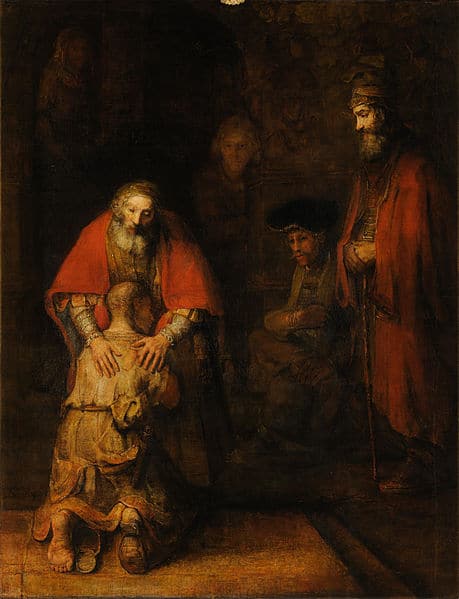 A New Look at a Beloved Parable
A New Look at a Beloved Parable
Author: Timothy Keller
We’re all familiar with the story of the prodigal son. It’s a Biblical parable that gets repeated often, but we rarely spend time on the elder brother – the one who is left, distanced and angry at the rampant forgiveness of his errant, spendthrift brother. The parable is about unconditional grace, about flagrant forgiveness, after all, and the aside about the elder brother is just that – a reminder that a good person forgives his brother.
Author Timothy Keller, however, has a completely different view of the parable, not the “forgiveness is good, yet challenging” message of our Sunday school youths, but something that focuses instead on the father and the wrongness of both the prodigal son and the supposedly good son. In The Prodigal God, Keller spends 130+ pages deep-diving into the culture behind the parable and into why it ends as it does – with the elder brother refusing to enter the feast. Forgiveness is still key here, but Keller convincingly argues that Jesus is showing us far more about life, about love, and about sacrifice than first meets the eye.
I came to Keller and this book through the C.S. Lewis fellowship, which is year-long program to encourage modern-day Christians to live every day for God as a testament to His might and will. This involves rigorous study, closely knit group work, an urban plunge project, and lots and lots of reading. The Prodigal God, then, comes under the heading of reading. And what a truly edifying book!
Keller starts by talking about the show stealer – the younger brother. This is a man who, essentially, takes his inheritance (showing that he wished his father’s death) early and partied with it. This was unprecedented dishonor – something a callous, selfish, hedonistic son would do. Something unimaginable to the hearers. And yet the father is kind. The father sells properties, divvies up land, and gives his son everything he wants. The son goes on his way and soon goes through his inheritance. It’s the old, old story. He comes back, repentant, and receives grace.
But what about the elder son? While the younger son sought to live through self-discovery, to pursue an existence that was ultimately hollow and left him bereft, the younger son has chosen an equally hopeless, dead-end path. That’s the surprise. The elder son is the rule follower . . . yet is he any better than the younger son? Does he love the father anymore, or is he simply seeking a different way to get his hands on the goods? Is he thinking that his action essentially earns him these goods? The actions of the elder son speak to dead moralism, a religiosity that is just as off-putting as it is ultimately fruitless. This is the unconventional side of Keller’s wisdom, and it is well explained.
Keller focuses on how both paths – the seemingly fun one, and the stern, rule abiding one are just as spiritually dead. Through this parable, Keller argues that Jesus is, indeed, pointing towards forgiveness but also the true need for a real elder brother, one who speaks on your behalf, begging mercy. The wages of sin, are, as we know, death. Forgiveness costs. Jesus, the true older brother, paid that price, and Keller focuses in on how this is expressed in the ending of the parable and what it meant in the time and that culture for the younger brother to be reinstated into the inheritance.
The Prodigal God is a thoughtful, heartfelt piece. It breaks down every part of the parable and ends by talking about the nature of salvation. It’s impossible to read this and not feel God’s love. It’s an edifying read, one that every Christian should work into their devotional studies. Afterwards, I could see the elder brother in my jealousy, in my “I deserve so and so” nature, and I could see the younger brother in my individualism and lack of prioritizing a community. I will read this again, and I am so elated that I read it now and that I will have time in the coming days to think over and apply its message.
– Frances Carden
Follow my reviews on Twitter at: https://twitter.com/xombie_mistress
Follow my reviews on Facebook at: https://www.facebook.com/FrancesReviews
- Book Vs Movie: The Shining - April 6, 2020
- Thankful For Great Cozy Mysteries - December 13, 2019
- Cozy Mysteries for a Perfect Fall - October 20, 2019


